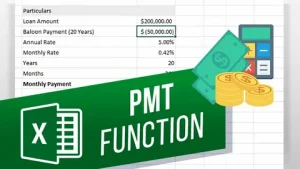The Concept of Small Amount Payments
Small amount payments refer to financial transactions that involve relatively low sums of money, often ranging from a few cents to a few dollars. These transactions have gained significant importance in recent years, especially with the rise of digi tal payment platforms and mobile wallets. Businesses and consumers alike are increasingly recognizing the value of facilitating small transactions for everyday purchases. The concept encompasses a wide array of services, from microtransactions in online gaming to the payment of small bills, such as utility charges or parking fees. By enabling these low-value payments, businesses can enhance customer engagement, improve cash flow, and create more streamlined purchasing processes.
tal payment platforms and mobile wallets. Businesses and consumers alike are increasingly recognizing the value of facilitating small transactions for everyday purchases. The concept encompasses a wide array of services, from microtransactions in online gaming to the payment of small bills, such as utility charges or parking fees. By enabling these low-value payments, businesses can enhance customer engagement, improve cash flow, and create more streamlined purchasing processes.
The Rise of Digital Payment Solutions
In the digital age, the emergence of various payment solutions has revolutionized how small amount payments are conducted. Mobile payment platforms, such as Venmo, Cash App, and PayPal, have simplified the process, allowing users to send or receive money quickly and efficiently. The convenience of these apps encourages consumers to make small transactions that they might otherwise avoid due to the hassle of cash or checks. Additionally, e-commerce sites have adopted microtransaction models, allowing users to purchase digital goods or services without significant financial commitment. As these digital payment solutions continue to grow in popularity, they are shaping consumer behavior and redefining the landscape of small amount payments.
Benefits for Businesses and Consumers
Small amount payments offer a multitude of benefits for both businesses and consumers. For businesses, accepting small transactions can lead to increased sales volume, as customers may feel more inclined to make impulse purchases when the costs are minimal. This can be particularly advantageous for industries such as retail, food service, and digital content providers. On the consumer side, the ability to make small payments can enhance the shopping experience by offering greater flexibility and convenience. For instance, consumers can pay for a quick snack, a ride-share, or even a small subscription service without the need for larger financial commitments. This fosters a more inclusive economic environment where everyone can participate, regardless of their financial capacity.
Challenges and Considerations
Despite the advantages, there are challenges associated with small amount payments that both businesses and consumers must consider. Transaction fees imposed by payment processors can significantly impact the profitability of low-value transactions. For example, if a business incurs a fee that exceeds the payment received, it can create a loss rather than a profit. Additionally, businesses must implement robust security measures to protect against fraud and ensure customer data is secure. Consumers, on the other hand, need to be aware of potential over-spending, as the ease of making small payments can lead to accumulating larger expenses over time. Balancing convenience with financial responsibility is essential for both parties in the realm of small amount payments.소액결제